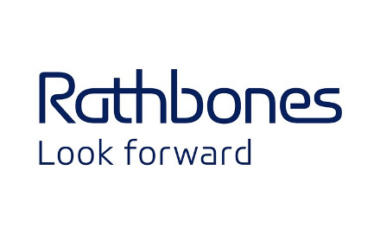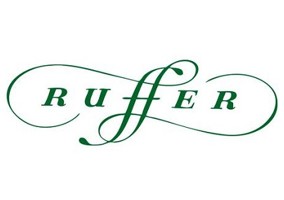Unchecked decisions at high levels were at the heart of the global financial crisis. Today, a decade later, there is a far sharper focus on how organisations are governed, with institutional investors expected to take a much more robust stance in calling to account the companies whose shares they own.
Matt Crossman, stewardship director at Rathbone Investment Management, looks at why investors should take stewardship responsibilities seriously.
The bailout of the Royal Bank of Scotland (RBS) was arguably the single most seismic event witnessed in the UK economy. Northern Rock had suffered a similar fate only months earlier, but this was a downfall on an altogether different scale.
With hindsight, it is clear that RBS’s board had chosen to prize expansion above all else. In 2000, in a move that transformed the bank from a regional player to an acknowledged powerhouse, chief executive Fred Goodwin and his fellow executives had defied the odds to buy English rival NatWest for £21bn. In 2007, when they turned their attention to the Netherlands’ ABN Amro, they significantly overreached.
The £49bn deal, completed with Spain’s Banco Santander and Belgium’s Fortis, represented the biggest bank takeover ever. According to the findings of a Financial Services Authority inquiry published four years later, the due diligence for this record-breaking acquisition was informed by two lever-arch folders and a CD. The board’s logic was that the NatWest coup, though hostile, had yielded some “pleasant surprises” and that this latest move, though also hostile, would surely do the same.
It turned out, of course, that the surprises would prove anything but pleasant. The purchase was finalised even as share prices everywhere were plunging and only weeks after the fast-developing credit crisis had overwhelmed Northern Rock. RBS’s board saw fit neither to withdraw nor to renegotiate as the US sub-prime market went into meltdown. Goodwin and the other directors pressed ahead. And the rest, as they say, is history.
The dog that didn’t bark
For whatever reason — and it may be worth noting that RBS made a concerted effort to win backing for its plans — almost 95 per cent of shareholders who voted on the proposal supported the acquisition of ABN Amro. As former Financial Times editor Sir Richard Lambert observed in 2011, it was a classic instance of “the dog that didn’t bark”.
“Investors were only bit players in this drama,” he wrote. “They played no part in holding the board to account.” Large institutional investors in particular were subsequently criticised for their apparent passivity, with the Treasury Select Committee suggesting they had “a case to answer” over the extent of their willingness to engage with and challenge investee companies.
As owners of any business, shareholders have rights. One of the most precious is the right to vote against management proposals as and when they see fit and to have those votes bind management. At that time, however, the broader culture simply did not expect shareholders to exercise their rights.
It was with this concern very much in mind that the Financial Reporting Council published its Stewardship Code in 2010. The result of a major review of governance within banks and other financial institutions, the code “aims to enhance the quality of engagement between investors and companies to improve long-term risk-adjusted returns to shareholders”.
Rathbones along with most institutions were well aware of the need to deepen their approach to stewardship and governance issues, not least as a direct response to clients demanding a far greater scrutiny in this area. Most in the industry now accept it is in the interests of their clients and society for the companies in which they invest to adopt best practice in their corporate governance, to exercise shareholder rights to hold those companies to account and, where appropriate, to try to bring about positive change.
Encouraging responsible leadership
A balance between independent and non-independent directors is fundamental to a good board.
Naturally, it is vital to have people who know the business inside-out. Yet it is also vital to have people who are able to critique the direction that management might be taking and who can represent the interests of longer-term stakeholders.
An independent chairperson is especially important in this regard. It is the chair’s job to set the agenda and ensure that the right issues are discussed, even if the topics might not be ones with which management are particularly comfortable.
Aligning interests
Executive pay is usually the subject of the most contentious votes at shareholder AGMs. Here, charity trustees look for clarity and in our view variable pay arrangements must incentivise executives to act in the best long-term interests of all stakeholders, and we will vote against when this is not the case.
Two years ago, for example, BP chief executive Bob Dudley stood to receive a total package in excess of £13 million, despite the company shedding jobs and making a sizeable loss. This was precisely the type of situation we refuse to endorse: an organisation saddled with a falling share price yet seeking to hand its senior management improved payouts.
Transparency is key here. One often receives remuneration reports that feature metrics whose fairness or otherwise cannot be discerned, and in such instances we invariably vote against. The goal should be to encourage the right sort of behaviour and to share success and boost morale across a company in its entirety.
Ensuring auditors do their job properly
Auditors can make a huge contribution to good governance. They can also make a huge contribution to bad governance: Arthur Andersen, which at the time was one of the world’s largest auditing and accountancy partnerships, was found guilty of obstructing justice after shredding documents detailing massive losses in connection with the Enron scandal in the early 2000s.
We are wary of situations where auditors’ proportion of non-audit work exceeds a certain ratio. This was the problem that developed at Enron: Arthur Andersen was earning so much from consultancy and other activities that it stopped providing an objective and reliable picture of its client’s financial status.
We are also wary of companies retaining the same auditors for long periods. Tesco kept the same auditors for more than three decades, and in 2014 it emerged that profit figures had been systematically overstated — to the detriment of shareholders. This has definitely become an area of key concern for trustees, and we encourage and welcome much deeper scrutiny of auditors fees on additional consultancy work.
Driving stakeholder engagement
Good stewardship is not just about meeting the best interests of shareholders. It is also about meeting the best interests of other stakeholders, including employees, communities and society as a whole. The events of 2007 and 2008 delivered a devastating warning of what can happen when this is forgotten — and it is still too often forgotten today.
More recently, the fall of construction giant Carillion, which continued to make regular payouts to investors while ignoring the threat of mounting pension deficits, neatly highlights the difficult debates we must navigate in our voting. Our investors clearly want income from dividends; but conspicuously favouring one set of stakeholders above another frequently leads to a lose-lose scenario, which is why we look to help companies and their senior managers plot a more equitable path.
This is in keeping with the broader notion of what has come to be known as “responsible investing”. Environmental, social and governance (ESG) considerations are being incorporated into a growing number of investment decisions, and a wealth of academic research indicates that improved governance is the ESG component that can add the most value for investors/trustees and the wider world alike.
Ten years on — and beyond
It would be unrealistic to assert that what happened at RBS a decade ago could not happen today. Some of the examples cited in this article underline that good governance still cannot and must not be taken for granted.
The power of active share ownership is earning ever-greater recognition. As stewardship rightly rises up the agendas of companies and the institutions that invest in them, the scope for boardroom recklessness — and, in tandem, the chances of another dog failing to bark — should continue to diminish.
This is an advertising feature.
Related articles












